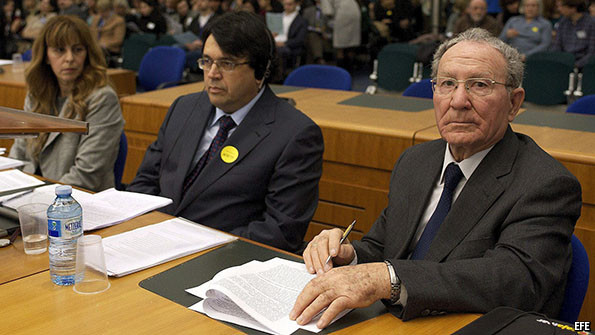Religion
Related: About this forumWhich freedom comes first?
A European court ruling on Spain

Jun 17th 2014, 13:32 by B.C.
THE European Court of Human Rights has just handed down a verdict (PDF) which some people have hailed as a victory for "religious freedom". Actually it would be more accurate to describe the decision as a victory for the freedom of religious organisations—as opposed to that of individuals making religious or ethical choices. And the outcome will be disturbing to many people, even including some who broadly agree that religions should be able to determine their own doctrines, rules and even disciplinary procedures without interference from the state.
To cut a long story short, a Spanish priest and pedagogue who married and had a family has lost a long battle to get some legal redress for the fact that he was effectively dismissed, at the behest of the Catholic church, from his job teaching Catholicism and ethics in a state school. José Antonio Fernández Martínez (pictured on the right) is now 77. He was ordained in 1961, and after 23 years of serving as an unmarried priest he asked to be released from his vows of celibacy. The following year, he married in a civil ceremony and proceeded to have five children. That in itself did not seem to create too much of a scandal; it did not prevent him being hired as a religion instructor in a state school, with church approval, seven years after his wedding.
But tension mounted in 1996, when he was photographed, along with his family, attending a meeting of a group called the Movement for Optional Celibacy; a press article quoted the groups as expressing relatively liberal views on issues like contraception and abortion. The following year, the Vatican formally pointedly released him both from celibacy and the "clerical state" and effectively barred him from teaching unless the local bishop decided otherwise. A month later, Mr Fernández Martínez was informed by the bishop that his annual teaching contract would not be renewed. As Marco Ventura, a law-and-religion pundit, wrote in the Italian daily Corriere della Sera, the decision had serious personal consequences for the long-suffering pedagogue. He was left out of work; only after two years did he get a job as a museum attendant to tide him over until retirement four years later.
By a razor-thin majority—nine votes to eight—the Court rejected the plaintiff's contention that he has suffered a violation of Article 8 of the European Convention on Human Rights, which lays down that "everyone has the right to respect for his private and family life..." The majority also declined to examine in detail possible violations under other articles. In a line of argument that is often used by religious conservatives, the majority maintained that people who serve the church are submitting to a kind of "enhanced loyalty" to that institution's rules, to which the state has no business in interference.
http://www.economist.com/blogs/erasmus/2014/06/european-court-ruling-spain
The Link to the five page decision is in the article.